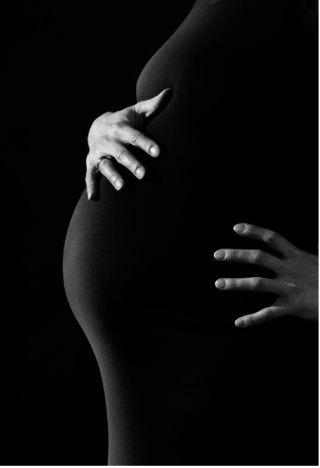It’s time to confront the Black maternal mortality crisis head on.
KEY POINTS
- Pregnant and mothering Black women are dying of preventable causes due to systemic racism in healthcare.
- The rates of mental health challenges are skyrocketing among Black women transitioning to parenthood.
- We must act now to confront the physical and mental health impacts of the Black maternal mortality crisis.
This post was written by Erica Marshall-Lee, Ph.D., ABPP, and Frances C. Calkins, M.A., on behalf of the Atlanta Behavioral Health Advocates.

Source: Pixabay/Pexels
I am angry. I am disappointed. And I am discouraged. Also I am confused. Once again, this is nothing new. Why this time, you ask? My instinct is to reply with the sardonic response, “Why not?” because, let’s face it, there is a multitude of reasons that African-descended women in the United States are angry, disappointed, discouraged, and confused.
On this occasion, I am referring to the fact that 11 months ago, my daughter gave birth to two beautiful baby boys. I should have been excited with the anticipation of holding my newest grands, but I wasn’t. I was utterly terrified. And I wasn’t worried about her babies. I was worried about my baby. While some might chalk this up to being an overprotective mama bear (which is an identity that I am quite proud of), this is a product of widespread systemic racism exacted against Black and Brown bodies.
You’ve heard the reports, and if you haven’t, allow me to educate you. Instead of experiencing pregnancy and the transition to parenthood as one of the most joyful and exciting times of a woman’s life, it is often one of the most frightening experiences that African-descended women face. The stark reality is that structural racism and personal bias in healthcare lead to a horrifying truth: Black mothers navigating pregnancy and childbirth are disproportionately dying of preventable causes.
For all women, navigating pregnancy and childbirth is a treacherous time, as evidenced by rising maternal morbidity across populations in the United States (Hoyert, 2023):
- 1,205 birthing people died due to maternal causes in the United States in 2021, a rapid increase compared to 754 and 861 deaths in 2019 and 2020, respectively.
- 2021 saw a maternal mortality rate of 32.9 deaths per 100,000 live births, compared to the relatively lower rates in 2020 and 2019 (23.8 and 20.1 deaths per 100,000 live births, respectively).
When it comes to Black individuals, these data are even more troubling.
- The maternal mortality rate for Black women was 69.9 deaths per 100,000 live births in 2021, which is 2.6 times higher than the 26.6 rate for White women (Hoyert, 2023).
- In Georgia, my home state, the maternal mortality rate for Black women is 66.3 deaths per 100,000 live births, compared to 43.2 for White women (SisterLove, 2023).
The chilling truth is that Black women are three times more likely to die from pregnancy-related complications than White women, and Black infants are two times more likely to die before they turn one. These complications include cardiac conditions, excessive bleeding, infections, blood clots, hypertension disorders, and, most prominently, mental health conditions (USAFacts, 2023).
This occurrence is unequivocally the result of discrimination, bias, and racism. This is clearly demonstrated by disparities in the utilization of and engagement with healthcare settings across the U.S. (Epstein, 2023; Hill et al., 2023). Unfortunately, evidence suggests that physicians still hold the belief that Black individuals experience less pain than non-Black individuals (Hoffman et al., 2016). This is a vestige left over from slavery in which slave owners justified the abominable practices involved in the slave industry.

Beyond the greater risk of misdiagnosis of mental and physical health conditions (Epstein, 2023; Fountain House, 2022), as well as under- and untreated medical conditions (Hostetter & Klein, 2021), Black and Brown people are less likely to be believed when reporting medical concerns (Funk, 2022). This ultimately leaves Black families making difficult decisions about if and how to utilize Western medical care during pregnancy and childbirth. To ameliorate risks, many choose to add a doula to their childbirth team to help advocate for safe and humane practices during the birthing process (Kindelan, 2022).
Beyond the physical risks of Black mothering, mental health disorders disproportionately impact pregnant and birthing Black individuals. In fact, Black women are at higher risk of developing perinatal and postnatal mood and anxiety disorders (PMADs) such as depression, anxiety, obsessive-compulsive disorder, and post-traumatic stress disorder. Specifically, over 40 percent of Black women experience postpartum depression, which is more than double the rate of the overall population (Wisner et al., 2013), a statistic that holds up even when controlling for socioeconomic factors, such as income and education level (Hernandez et al., 2022). Though Black women are twice as likely as White women to experience PMADs, they are half as likely to receive care (Kozhimanill et al., 2011; Taylor & Gamble, 2017). Even more concerning is the reality that being a single Black mother increases the likelihood of experiencing depressive symptoms by six times that of the overall population (UPMC HealthBeat, 2020).
This is no doubt due to the barriers Black women face in accessing mental healthcare, some of which include:
- Systemic and interpersonal racism (Sethi, 2020; Parker, 2021; Mathews et al., 2021)
- Distrust of healthcare systems (UPMC HealthBeat, 2020; Parker, 2021)
- Shame and stigma (Kozhimanill et al., 2011; Taylor & Gamble, 2017; Parker, 2021)
- Logistical barriers, such as getting time off work, coordinating childcare, and transportation issues (Kozhimanill et al., 2011; Taylor & Gamble, 2017)
It is imperative that we work to personally and systematically remove these barriers to get Black mothers the care they need.
In sum, we must stand together to put an end to this senseless oppression. We can put an end to the Black maternal mortality crisis. We must decide that we no longer stand for the devaluation of Black and Brown women bringing new life into the world.
Though the reality of this crisis is overwhelming and disheartening, it is vital to take action where possible. Speak up in your workplaces, in your communities, in your homes. Contact your local representatives fighting for and defending reproductive justice. Seek appropriate mental healthcare. Find physicians in your community who are listening to and advocating for Black women and their experiences. Use resources such as the CDC’s Hear Her campaign and Black Mamas Matter to educate yourself and elevate the voices of those working to end this crisis.
Passivity is no longer an option. Our lives, our community, and our futures depend on it.

